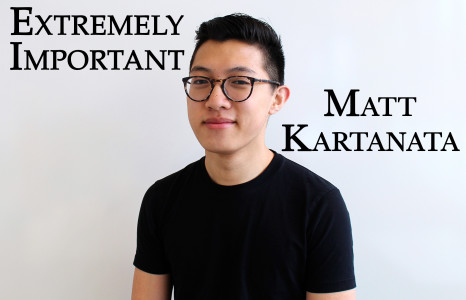Column by Matt Kartanata
kartanat@grinnell.edu

Since Yao Ming retired with foot injuries and Sun Yue never ended up making it big, Jeremy Lin has become the premier Asian-American athlete in NBA basketball — and if only because of those dastardly identity politics (if it’s not obvious, I’m Asian-American), I should pay attention to him. At the very least, I should care because Lin had an endearing but disastrous stint on “Byron Scott’s Wild Ride” with the Los Angeles Lakers last year, and the Lakers are my favorite train wreck in the NBA. But Lin is a good athlete in his own right, sparking headlines throughout the duration of “Linsanity.” He’s been having his best season since 2012 with the Charlotte Hornets and he’s made it back into the headlines. This time, however, it’s for how others referee him.
A video featuring Lin went viral this week, showcasing numerous times throughout his career that referees ignored Lin, failing to call fouls when he has been swatted, punched and bloodied. In order to avoid the boring, pedantic details of NBA refereeing, suffice it to say that the amount of evidence presented is as damning as it is mind-boggling for so many sports fans. Referees making bad calls is accepted — it’s a necessary, albeit frustrating, part of the job. But to this extent? Something smelled rotten.
Nearly a decade ago, a study was conducted on the implicit, subconscious racial bias in NBA refereeing, finding that referees of a race different to those of players were more likely to make incorrect calls against them. The context of the study was between white/black players and refs, and a follow-up study in 2010 found that since the original findings elicited a flustered denial by the NBA of any racial bias (they conducted their own internal study with no similar observations), such bias seemed to be corrected. Fast forward to 2016 however, and Lin’s case seems to stand as a counterexample.
“Stuff like this is how I’m just astonished when I see people say stuff like racism doesn’t exist anymore. Yeah, it isn’t as blatant as it was, but this is just terrible,” said Reddit user Agastopia on the r/NBA subreddit. “I don’t know that I’ve called racism on anything before, but I agree with you. It’s racism,” chimed in fellow user Ddnsf11.
The point of singling out Reddit comments is to show that this is an aggregate belief, not a unique opinion. Both comments were met with robust support. But these comments in particular stand out to me. Make no mistake: race is an intimate part of sports. There are volumes of literature on this, if the majority of players being black and majority of coaches and owners being white didn’t already set off an alarm (See: William Rhoden, Billy Hawkins, Krystal Beamon). I won’t even get into the distinction of systemic racism versus what is being discussed in those comments. But in any other context, when race is brought up, the conversation is moved out towards the periphery, rather than being discussed center court. The fault is put on the “sensitive” for noticing inequality, getting offended or making it about race. The idea that someone of privilege might only decide to recognize the product of systemic oppression through a montage of Lin failing to receive foul calls is surreal.
That might be encouraging, rather than disheartening. So often the discussions we have surrounding racism in a structural context alienate those who don’t have the background knowledge to critically engage with the concept. I suspect this column has likely done the same. Recognizing my own elitism, these conversations are inaccessible and while not wholly unproductive, could have a different bottom line than empty theoretical talk. However, I also know that there are people far better than myself at having accessible conversations, who are still met with reluctance at the mere mention of race. The onus should never be on the underrepresented, the oppressed, the minority to educate those in power.
I don’t think the discussion surrounding Lin will be the turning point for those who were already skeptical of the mere existence of racism in the 21st century. But it could be the start of something.



















































